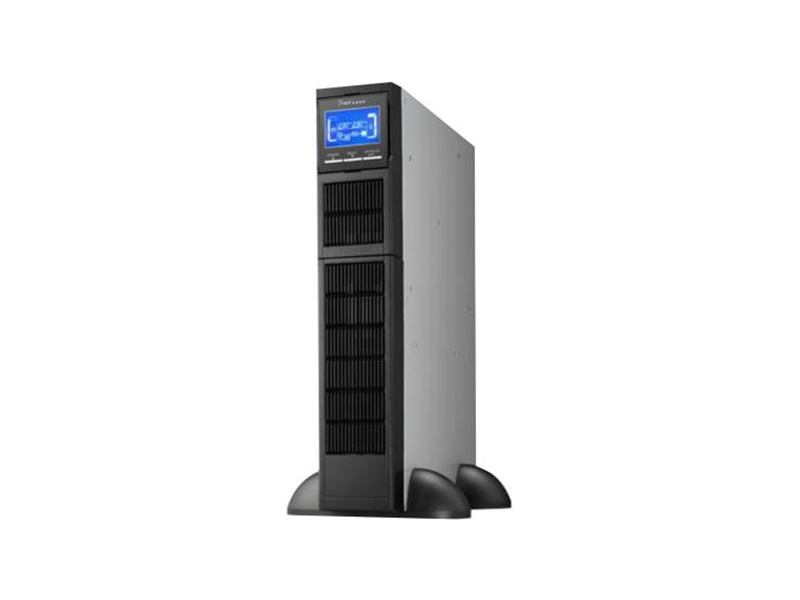language
In today’s fast-paced, tech-driven world, power disruptions can happen at any moment, posing a significant risk to your electronic devices. Whether it's a sudden power outage, a surge, or voltage fluctuation, these interruptions can damage sensitive equipment, result in data loss, and disrupt your work. That's where an Uninterruptible Power Supply battery backup comes into play.
A reliable UPS system acts as a safeguard, ensuring your devices continue running smoothly even during power disturbances. This article explores the importance of investing in a reliable UPS battery backup and how it protects your valuable electronics.
1. What is a UPS Battery Backup?
A UPS battery backup is a device that provides temporary power during a power outage or disturbance. It not only keeps your devices running when the main power source fails, but it also protects against power surges, brownouts, and other irregularities that can harm electronics.
When the main power supply is interrupted, a UPS immediately switches to its battery backup, giving you time to either continue your work or shut down devices safely to avoid data loss or hardware damage.
For example, the AF900R series online transformerless rack-mounted UPS has single-phase input and single-phase output, and has complete detection and protection functions; it is small in size, light in weight, and has high working efficiency.

2. Protection Against Power Surges and Voltage Fluctuations
Power surges are sudden spikes in voltage, often caused by lightning strikes or electrical grid instability. These spikes can severely damage sensitive electronics, including computers, servers, and home appliances. Similarly, voltage drops or sags (brownouts) can cause system malfunctions and slowdowns.
A reliable UPS battery backup provides surge protection by filtering out these fluctuations and ensuring that your devices receive a consistent, clean power supply. This means that even during a power surge or a voltage dip, your electronics will remain safe and continue to function properly.
3. Prevent Data Loss and Corruption
For businesses and individuals who rely on data, power interruptions can be a nightmare. A sudden power outage during an active file transfer, system update, or unsaved work can lead to corrupted data or, in the worst case, total data loss.
A UPS battery backup gives you precious minutes to save your work and safely shut down your devices. With enough runtime, it allows you to finish important tasks or take corrective actions, such as triggering an automatic backup or shutdown sequence. This protection is especially crucial for individuals working with sensitive or mission-critical data, such as financial records, designs, or medical information.

4. Ensures Business Continuity
For businesses, downtime is costly. A power failure can disrupt operations, leading to lost productivity, missed deadlines, and frustrated clients. In some cases, prolonged outages can lead to financial losses or reputational damage.
A UPS battery backup is a business-critical tool for maintaining continuity during power disruptions. Whether you're operating a small office or a larger company, a UPS ensures that your IT infrastructure—servers, workstations, networking equipment—remains operational, giving you time to implement contingency plans, close transactions, or communicate with clients before shutting down.
5. Affordable and Scalable Protection
While a UPS battery backup is a smart investment, it doesn’t have to break the bank. Models are available at a range of prices to suit different needs, from basic home office setups to high-demand business environments.
For home users, an entry-level UPS system might be enough to power a computer, monitor, and a few peripherals. On the other hand, businesses with more critical equipment, such as servers and networks, may require larger, more robust UPS systems. The scalability of UPS systems means that you can choose one that fits your specific requirements and budget, making it an affordable solution for most.
6. Easy Installation and Maintenance
One of the biggest advantages of a UPS battery backup is its ease of installation. Most consumer-grade UPS models are simple to set up—just plug in your devices and the UPS to the wall outlet, and you're ready to go.
In terms of maintenance, a UPS battery backup typically requires minimal upkeep. Many models feature battery health indicators, letting you know when it's time to replace the battery. Some also come with software that allows you to monitor the UPS status, schedule shutdowns, and perform diagnostics remotely. This ensures that your system remains in top condition and is ready to provide backup power when needed.
7. Peace of Mind and Reliability
The most significant benefit of a UPS battery backup is peace of mind. Knowing that your electronics are protected against power failures, surges, and fluctuations allows you to focus on what matters—whether it's working on a project, streaming a movie, or conducting business operations.
With a reliable UPS system, you don’t have to worry about sudden disruptions, and you can rest assured that your devices will continue to operate smoothly, even in the event of a power failure. For businesses, this peace of mind translates into reduced risk and increased confidence in daily operations.
A reliable UPS battery backup is an essential investment for anyone who wants to protect their electronic devices from power disruptions, surges, and data loss. Whether you're working from home, running a business, or simply want to keep your devices safe, a UPS provides continuous protection, ensures business continuity, and enhances the longevity of your equipment.